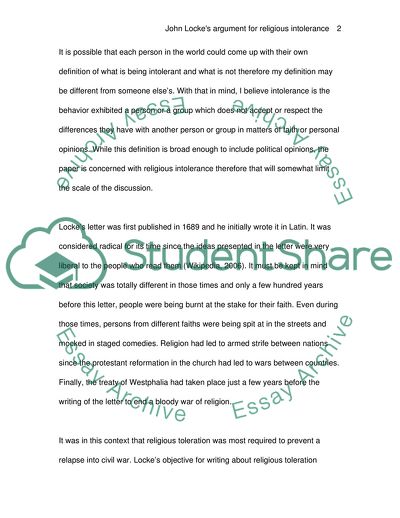Cite this document
(John Lockes Argument for Religious Intolerance Coursework, n.d.)
John Lockes Argument for Religious Intolerance Coursework. https://studentshare.org/religion-and-theology/1703751-inconsistencies-within-john-lockes-argument-for-religious-intolerance-as-presented-in-a-letter-concerning-toleration
John Lockes Argument for Religious Intolerance Coursework. https://studentshare.org/religion-and-theology/1703751-inconsistencies-within-john-lockes-argument-for-religious-intolerance-as-presented-in-a-letter-concerning-toleration
(John Lockes Argument for Religious Intolerance Coursework)
John Lockes Argument for Religious Intolerance Coursework. https://studentshare.org/religion-and-theology/1703751-inconsistencies-within-john-lockes-argument-for-religious-intolerance-as-presented-in-a-letter-concerning-toleration.
John Lockes Argument for Religious Intolerance Coursework. https://studentshare.org/religion-and-theology/1703751-inconsistencies-within-john-lockes-argument-for-religious-intolerance-as-presented-in-a-letter-concerning-toleration.
“John Lockes Argument for Religious Intolerance Coursework”. https://studentshare.org/religion-and-theology/1703751-inconsistencies-within-john-lockes-argument-for-religious-intolerance-as-presented-in-a-letter-concerning-toleration.


